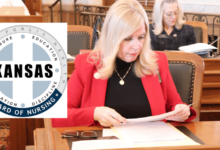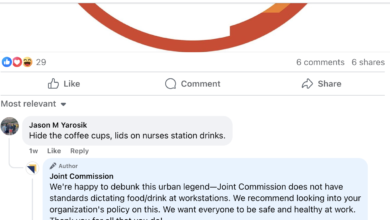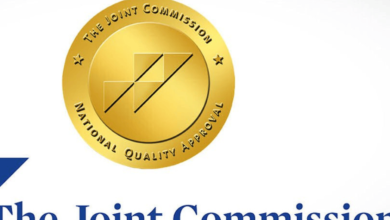NMC launches forum to support UK’s international nursing workforce

The Nursing and Midwifery Council (NMC) has set up a new forum for international nursing and midwifery associations (INMA), to better understand of the experiences of overseas professionals practising in the UK and improve support for them.
It comes as data shows that the growth of the UK nursing and midwifery workforce has become ever more reliant on internationally educated and diaspora professionals joining the register.
“I really value the NMC for creating a space where internationally educated and diaspora professionals can influence their work”
Ofrah Muflahi
In its biannual report, published last year, the NMC found that almost half of new registrants had trained overseas.
As a result, the regulator has announced that it will be setting up a new INMA forum for organisations representing international nurses and midwives to come together.
Under the NMC plans, the INMA forum will be held at least twice a year, with the first meeting taking place today.
INMAs provide both personal and professional support for internationally educated and diaspora professionals working in the UK.
The NMC revealed last year in its inaugural Spotlight on Nursing and Midwifery Report that internationally educated nurses had been left crying at the end of shifts and feeling traumatised because of the racist and derogatory comments they face.
In addition, these nurses reported that they were not always respected or treated the same as their colleagues, which had impacted them and their ability to give safe and effective care to patients.
The new forum is intended to bring international associations together to work with the NMC to amplify the voices of overseas professionals working in the UK and to ensure they receive the right support.
The forum would ensure that expertise, evidence, experience and knowledge from internationally educated and diaspora professionals “inform and challenge all that the NMC does” as a regulator, it said.
In addition, it said it would actively involve these professionals in co-producing the NMC’s strategic work, as it considers the future of nursing and midwifery regulation in the UK.
Meanwhile, the NMC said it would work together with internationally educated and diaspora professionals to develop policies and decisions that will help support safe and effective care for the public.
The INMA forum will not be part of the NMC’s formal governance and decision-making structure, but instead will be made up of a small number of strategic engagement groups held at least twice-yearly.
The forum will be supported by an advisory group, which will be chaired by Sam Foster, executive director of professional practice at the NMC.
Ms Foster said: “I’m delighted to be leading this new initiative, which aims to amplify the voices of international and diaspora professionals working in the UK and help ensure that they receive the right support to deliver high-quality care for people.
“These brilliant professionals all make a vital and welcome contribution to the public’s health and wellbeing,” she said.
Ms Foster noted that racism and discrimination against internationally educated and diaspora professionals was having a “damaging impact” on the workforce.
“With health and care services increasingly dependent on internationally educated and diaspora professionals, it’s paramount they can practice in a safe, inclusive and supportive environment, which enables them to thrive for the benefit of the public,” she added.
Meanwhile, Ofrah Muflahi, founder and director of the British Arab Nursing and Midwifery Association and INMA forum advisory group member, said: “I really value the NMC for creating a space where internationally educated and diaspora professionals can influence their work.
“It’s important that the lived experiences of internationally educated and diaspora professionals are heard and understood so that we can all work towards solutions that support them to thrive in their role and provide the best care possible.”







